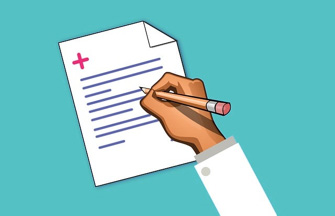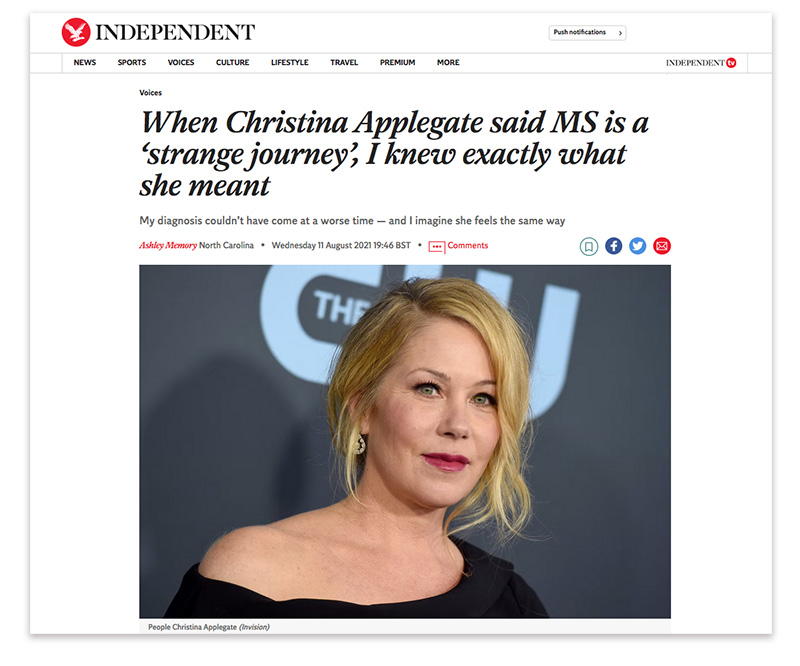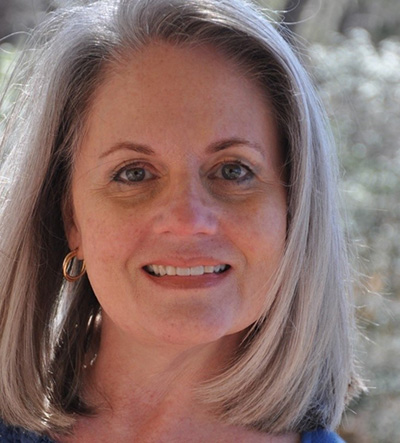 Do you pore over essays and articles that cover the health field? Do you have a chronic illness yourself or are you a caregiver for someone who does? If so, consider becoming a health writer. You’ll have the opportunity to help countless people by providing what may be life-saving information, for their physical as well as emotional wellbeing.
Do you pore over essays and articles that cover the health field? Do you have a chronic illness yourself or are you a caregiver for someone who does? If so, consider becoming a health writer. You’ll have the opportunity to help countless people by providing what may be life-saving information, for their physical as well as emotional wellbeing.
The dynamic and growing field of health writing is open to anyone, even if you’ve never had direct experience with the medical sciences. Nor do you have to be a licensed professional or hold a special degree. This is especially welcome for those of us who gravitate more toward the liberal arts than the sciences. All that is required is a basic curiosity and the willingness to learn.
How I Broke In
 My journey first began when I retired early from my job as an admissions counselor in 2017. As a long-time warrior of multiple sclerosis (MS), I planned to take better care of my health and pursue more meaningful activities, especially writing. I wrote short stories, essays, and poems for various literary magazines, but at the same time, I dreamed of writing articles and essays for commercial outlets.
My journey first began when I retired early from my job as an admissions counselor in 2017. As a long-time warrior of multiple sclerosis (MS), I planned to take better care of my health and pursue more meaningful activities, especially writing. I wrote short stories, essays, and poems for various literary magazines, but at the same time, I dreamed of writing articles and essays for commercial outlets.
To help, I read The Byline Bible by Susan Shapiro, New York Times’ best-selling author (whom I later interviewed for WOW). I also took several of her excellent Zoom workshops, where I learned the importance of a laser-sharp pitch (shorthand for a request for a writing assignment) to editors based on timeliness and personal experience. This led to my first paid essay, “The Pandemic Helped Me Disclose My Multiple Sclerosis” (Rooted In Rights blog, July 9, 2021). Later, when Christina Applegate announced that she had MS, I seized the opportunity to write my first news-oriented essay, “When Christina Applegate Said MS Was a Strange Journey, I Knew Exactly What She Meant” (The Independent, August 11, 2021).

These two pieces opened a floodgate of opportunities, both in terms of the market and a growth in my confidence. Next, I responded to a call for pitches from an editor at Healthline Media, the number one health information publisher in the U.S., about the connection between sustainability and a healthy lifestyle. “What Growing My Own Food Taught Me About Living Intentionally While Navigating MS” ultimately led to 20 bylines in the Wellness, Real Talk, Sex and Relationships, and Managing MS sections of Bezzy MS, a sister platform to Healthline just for people with MS.
For almost three years now I’ve worked with Laurie Budgar, a compassionate and talented editor with a knack for those subtle edits that polish my work. Recently, I’ve had the pleasure of working with her on some of the most rewarding essays I’ve ever written, such as “How Rejecting the Hollywood Ending Has Helped Me Cope with MS” (January 2024) and most recently, a humor piece, “Real-Life Hacks for Awkward Social Moments with MS” (April 2024).
Depending on the word count and research required, rates for health writing vary. Bezzy currently pays new writers $150 - $175 per piece and Rooted in Rights, the disability blog where I got my first start, now pays $400 for a 500-word blog entry!
While health writing helps supplement my income, the rewards are far more than monetary. I find it enormously healing to write about MS, and it brings purpose to my life to help other people manage their own chronic illnesses.
Perfecting the Pitch
A pitch is usually sent to a specific editor through email. There are numerous sources of calls for pitches, and I have found many posted on “X” (formerly Twitter, where I follow my favorite editors), on the Freedom with Writing website, and in the WOW newsletter. The April WOW! newsletter included exciting calls for health-related pitches from editors at The Stylist, Monarch, and Verywell Mind for articles paying as much as $500.
Pitch emails should be short and concise. My editors have always appreciated a suggested title, even if it changes later. A proposed title establishes your angle right off the bat.
Sample pitch:
Dear Ms. Brown,
I enjoy (name of media outlet) very much, and as someone who has lived with X for X years now, I find the collection of articles and essays on this topic to be very helpful.
I write to pitch an essay, “Connecting with a New Doctor: Tips for Building a Bridge,” the story of how I coped with the retirement of my long-term neurologist and learned to trust a new doctor. My essay would be particularly timely because as the New York Times reported on November 15, 2020, an unprecedented number of physicians retired during the pandemic, forcing countless patients such as me to find a new doctor.
SHORT BIO: I’m a former college admissions counselor in central North Carolina, and I've written for The Independent, Wired, Rooted in Rights, and Real Simple. My health-related pieces include.... (1-3 links to your writing).
Thank you.
Name
Address
Email address
Timely pitches are particularly effective for pitching an editor that you’ve never worked with before. Not all pitches need a news angle, especially if you’re responding to a specific call. If this is the case, you might simply write: “In response to your recent call, I write to pitch X....” But if you do respond to a call and can offer a timely angle as well, that will likely give your response the edge above others.
Pro Tip: Make the most of the subject line of your email so it catches the attention of an editor right away. “Timely Essay Pitch: Connecting with a New Doctor: Tips for Building a Bridge.”
It may take a few days, or even a week or two, before you hear back from an editor, but in the meantime, go ahead and get started on the piece. Writing the pitch is the hardest part, so don’t let this effort go to waste. Plus, you can always submit the completed piece to someone else in the future.
First-Timer? Don’t Sweat It!
Writing experience is important, and published clips can help but they are not required. What’s most important is the quality of the pitch and your enthusiasm for the topic. If you don’t have a published clip yet, write a sample article in the style of the publication you’d like to write for and post it on your blog or Google Drive. You can then share these links in your pitch letter.
Writing about your own health can be challenging at first. To break the ice, take a class or two. I first began writing about my MS during WOW! classes led by Chelsey Clammer, whose support and stimulating writing prompts served as the genesis for many of my published pieces.
Get Help
To enhance pieces such as “Feel Safer in a Volatile World: Tips for Self-Defense While Living with Disabilities” (Bezzy MS, November 30, 2023), I sometimes interview credentialed experts, which can easily be found on Connectively, Qwoted, or through searches on LinkedIn, for example. Soliciting advice from experts helps me tighten the angle on my work and lends credibility through the addition of their quotes.
I stay informed on my topic by subscribing to Google Alerts, which sends me notifications of articles containing the words “multiple sclerosis” and other terms related to pieces I’m working on. In fact, this is how I first learned of Christina Applegate’s MS diagnosis.
Best of Both Worlds
 I enjoy writing for commercial outlets tremendously, but because I’m a poet at heart, I still enjoy experimenting with expressive language and innovative forms. So, I also write creative nonfiction for literary magazines. And because the topic of MS is so close to my heart, I sometimes tackle the same subject in a different way.
I enjoy writing for commercial outlets tremendously, but because I’m a poet at heart, I still enjoy experimenting with expressive language and innovative forms. So, I also write creative nonfiction for literary magazines. And because the topic of MS is so close to my heart, I sometimes tackle the same subject in a different way.
My self-help piece “How I Overcame Compulsive Shopping to Cope with My MS Body Image” (Bezzy MS, June 29, 2022) inspired a deep dive into the subject of my fixation on shoes, a new piece with similar themes. Feedback from my “Memwarriors,” fellow writing sisters Ang and Marilyn, proved invaluable on this longform CNF. “Buy Now: The Summer of My Shoe Obsession” earned Honorable Mention in the 2023 Alex Albright Nonfiction Contest and will be published in the Summer 2024 issue of the North Carolina Literary Review.
Think Big
Writing short and sharp pieces for commercial outlets will undoubtedly improve your writing and build confidence. You will get faster at both conception and execution, and you’ll soon envision multiple angles from a single topic. You will have a significant body of work before you know it.
Another side benefit of health writing (or any commercial work) is that you can build a valuable platform along the way that may help you promote a book of your published pieces in the future. As I continue to write about MS for commercial media, I am also working on a memoir of literary essays about finding love and happiness while living with a chronic illness. So, think beyond your first article or essay, and look for themes in your work. You may have a book in you too!
Bonus and a Hot Tip
 Interested in Writing for the Bezzy Community?
Interested in Writing for the Bezzy Community?
According to Laurie, “Bezzy is always looking for great writers and pitches in all 10 of our communities, which in addition to Bezzy MS, include Bezzy Breast Cancer, Bezzy COPD (Chronic Obstructive Pulmonary Disease), Bezzy Depression, Bezzy IBD (Inflammatory Bowel Disease), Bezzy Migraine, Bezzy Psoriasis, Bezzy Psoriatic Arthritis, Bezzy Rheumatoid Arthritis, and Bezzy T2D (Type 2 Diabetes). As a hot tip, the editor for COPD really needs qualified writers.”
She says that the best way to get started is to fill out the Bezzy Writer Survey and adds: “We’re interested in people’s lived experiences, and reading through some of our existing articles and forums is a great way to get familiar with what we publish. I’d also advise people to pitch story ideas, not topics. In other words, don’t tell me you want to write about ‘parenting with MS’; instead, tell me about a particular challenge you have/had as a parent living with MS and how you approach(ed) it.”
***

Ashley Harris lives in southwestern Randolph County, North Carolina, surrounded by the mystical Uwharrie Mountains. She is a regular contributor to Bezzy MS, writing on subjects such as self-care, exercise, gardening, and faith while living with MS. She’s also working on Cherry Wild, a memoir of linked essays on these topics and more, based on her seven years growing cherries. For more, see ashley-harris.com.